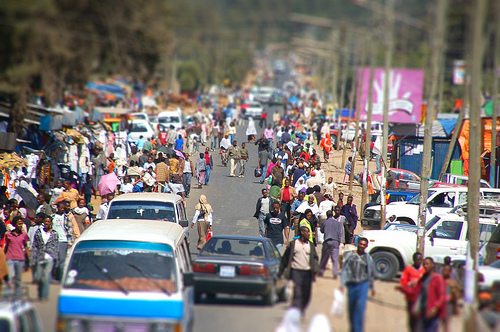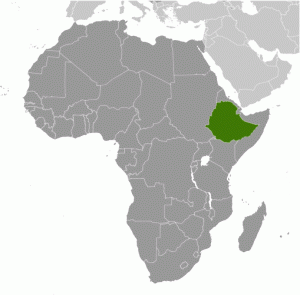I read through Eugen Rosenstock-Huessy’s collection of essays titled “I am an Impure Thinker” a couple of weeks ago. Leithart insists that the guy is worth reading. After doing so, I must agree. Fortunately, I was able to find this book as a PDF on Scribd. Otherwise it’s rare and out-of-print on Amazon and costs $50. Some of his larger focused works are easy to get a hold of, but I was looking for a sampler or reader anthology. It’s unlikely that I’m going to get around to writing individual blog posts about much of the material. Here are some of what I found to be the most interesting passages, though some of them are in desperate need of context.
More trouble with specialists – they’re human like the rest of us.
We no longer believe in the timeless innocence of philosophers, theologians, scientists; we see them write books and try to gain power. (p.14)
On the need to integrate philosophies for balance.
Both the “credo ut intelligam” and the “cogito ergo sum” worked very well for a time. However, finally the “credo ut intelligam” led to the Inquisition and the “cogito ergo sum” into an ammunition factory.(p.14)
On being in such a state that you MUST write a book. It’s not really a choice.
I am hurt, swayed, shaken, elated, disillusioned, shocked, comforted, and I have to transmit my mental experiences lest I die. And although I may die. To write a book is no luxury. It is a means of survival. By writing a book, a man frees his mind from an overwhelming impression. The test for a book is its lack of arbitrariness, the fact that it had to be done in order to clear the road for further life and work. (p.2)
I love this quote or how good education doesn’t need to be forced.
Any inspiring education is propagation. If we propagate ideas instead of selling them, we shall not be in need of that sad substitute for propagation—propaganda. (p.21)
Parts of a long passage on language, work, destiny, etc. 🙂
Neither the right names for God nor the vital dialogues of Men can be deduced from concepts used for the things of this world. Concepts cannot be “experienced,” words and names can. Man makes the world work, not pragmatically for his own ends, but as the faithful servant of some higher design and purpose, in honor and valor, with the eyes of the soul wide open. (p.29)
“Bring it about,” William James would say; it will not come about by education, or by accident, or by progress, or by fate or by any causation and mechanism. The universe in which we move is cleft and plural. You have to fill the gaps between its banks and edges, as thinkers, workers, soldiers. The great traditions of the race—freedom, faith, hope—never exist unless thou insisteth upon them. Make nationalism shrink so that the universe can grow.
And so the soul of William James will converse with us when we, in work, in thought, in battle, bring about a growing universe of free people. (p.33)
We must now ask the reader to enlarge on his assumption that language consists of words. This assumption is too narrow. To say that language is contained in the dictionary is a half-truth. The state of language in the dictionary is a special state of affairs. A dictionary is the “reduction” of language to the aggregate state of mere words. “Words” are language which is powerless, which is dismissed or spent. “Words” are spent language waiting for resurrection. As mere words language finds itself between two other phases of its circulatory process, between the use of language for conceptual purposes, for thought, and its use for the other purpose, nearly overlooked, ridiculed as arbitrary: for naming things. (p.41)
On the power of names. Naming our children is ongoing I think.
The name is the right address of a person under which he or she will respond. The original meaning of language was this very fact that it could be used to make people respond. The very word “responsiveness” today is less popular than its often invoked variation—“responsibility.” I am responsible for something objective. The complaint is heard often that people are not responsible enough. However, may it not be true that we cannot be responsible when we are not allowed to be responsive first? If no soul calls upon our name, we perhaps are too weak to shoulder responsibilities. As long as we are only taught and addressed in the mass, our name never falls upon us as the power that dresses our wounds, lifts our hearts, and makes us rise and walk. (p.42)
Some interesting discussion on how modernism and the industrial revolution does not account for the soul. Wendell Berry discusses this too when he talks about the “need for meaningful work” or in his discussions about how having lots of nice appliances at home made being a house-wife worse in many ways, not better.
Do as much as you can with as little effort as possible, is the motto of the anonymous, impersonal, objective, scientific mind. This Cartesian mind has successfully discovered how to use fewer and fewer means for bigger and bigger results. A modern factory is the ideal display of this economizing in words, in organization. This economy, however, cannot apply to man himself. He must still find some incentive for an “all-out” attitude. Man must still feel called forth as being good for something. He would be a rascal who, out of sheer indolence, would not use his full energy. Cartesian logic reduces man’s responses to minimum responses. For every individual or particular task this reductionism is valuable. But when it means that these savings in time or effort reduce man’s stature, when it means that because I only have to work three hours for my daily bread in the future, I also will only be fully alive three hours of my day, then the person is thwarted. For a person is a man who responds with his whole heart to his calling. And any element of the universe that whispers to a human being, “respond lest I die,” calls forth this man personally to his human destiny. “All out” is the attitude of the man who has heard his calling and who knows that he can only become a person in the process of responding to his calling. Man must be both indolent and all out. When his mind can find a shorter way, a better tool, he may save energy. The mind is our saver of energy; this is what we call the Ego. But the soul is our investor, our spendthrift, our savior when life seems to die from inertia and indifference and lack of orientation. (p.51)
A great quote about creation and energy.
“Creation is taking place under our very noses. And nobody can stay neutral in this spiritual war between bequeathing the good qualities to the future through faith or giving up from despair the task of weeding out the diabolical qualities.”
On basing growth from the child outward, instead of working backwards from a model of maturity.
In secular psychology which begins with the child itself, we are told that it should pull itself up by its own bootstraps and become itself, express itself, live by itself. Of this the inexorable consequence must be that it will have to live and may also have to die by for and unto itself. A horrid spectacle indeed. (p.73)
On DOING being critical to understanding, not just thinking.
A child cannot learn to speak by swallowing nouns, mere words, but only by carrying out orders existentially. The verbs are the root words by which the child is put in action. Our machine age with push button mechanizing is threatening our children because, instead of enacting the verbs go, push, pull, tear, lift, answer, speak, write, move, climb, etc., the child is surrounded by dead things which by one and the same motion can be made to respond. We cannot become eloquent unless we enact the words spoken to us existentially. (p.76)
On timing. This pass was really good, but I found it difficult to elaborate on at the time. I’m pretty sure I’ll come back to this one in the future.
Man’s dignity lies not in producing private opinions but in timing public truth. His speech must not only be more than himself: it must come at the right moment, in the fullness of time. Then his words acquire a “once for ever” meaning. All the sayings of Jesus were quite simple; they became important forever because they were spoken at the right moment, “when the time was fulfilled.” A truth taught without the time element is abstract, therefore not vital. Truth is concrete at the lucky opportunity and hour. When we speak too late or too early we are out of luck; our truth remains abstract, and we fail to create a present in which people transcend mere past and future; we lack presence of mind. For these reasons teaching involves all the central problems of timing. (p.95)
On the perfect timing of Jesus!
Jesus restored to us this plenitude of speech. This was his mission, life, calling, office. He saved the straying gentiles and the locked up Jews. He did this by cross-fertilizing the four paths of speech. He created an eternal unity of spirit from the beginning to the end of history. But he created it by simply speaking to twelve average men. They did not understand that the hour which he spent with them was one hour of eternity which made history. What he said to them made no sense in the frame of reference in which the clansman or the Greek or the Egyptian lived. It made sense only in Israel, which lived in expectation of the end. Even in Israel it made only negative sense in anticipating the kingdom of the Messiah. So Jesus spoke nonsense for the time being. But he undid what people called the time being. For he created a new yardstick for all times. He spoke backwards from the end towards the act of daily life, outside the temple of Solomon. (p.117)
Of course you teach by who you are, not by what you teach. Good stuff. This has been on my mind a lot lately with regards to my own parenting. (This passage is also pro-homeschooling!)
We still hold to the fiction that parents actually do decide upon the religious upbringing of their children. Of course, in this country, that means the Roman Catholics allow the Church to take over the education of the young, and that the others send their children to Sunday school; or, in other words, parents ask their children to believe in something they themselves do not believe in. We thus have a wonderful arrangement which all comes under the heading: parents have the right to determine the religion of their children. When marriage was created, that right was understood in a very different sense. The first authority that comes with parenthood is the right to influence, educate and direct one’s children, under the one condition that the parents impart their own beliefs to the children. But in ninety per cent of the cases today, parents do not impart their own beliefs. Instead, other institutions, like the churches, or the ethical culture schools, provide beliefs and religion which the parents themselves do not have. Parents have lost the power to demand from the community the authority to bring up the next generation because they have gradually relinquished this authority to the nursery schools, the psychologists, the psychoanalysts, or the American Legion. Everyday parents are abdicating their sacred duty to love their children in favor of people who frankly declare that love is damaging. (p.123)
Anyone trying to change the world in a big way needs to take note of this:
All great revolutions presuppose a colossal effort of human liberty and free will. They all arrive at their limits because they underestimate the freedom of their neighbors. The Great Revolutions never take into account the fact that mankind cannot act all at once. They overestimate the capacity of humanity for simultaneous change. They are bound to do so, because they appeal to only one class of mankind. (p.141)
What is the secret of eternal life? Reproducing yourself!
The biological secret of eternal life can, perhaps, be formulated thus: Lest the old kinds die or stagnate, a new kind branches off from the tree of life. By reason of this flowing forth of life into new forms, the forms already existing are able to survive. The revolutionary creation of one new kind permits the evolution of the older kinds. (p.164)
On the curious phenomenon that all forms of government seem to have a critical mass of supporters, even bad ones. American’s trying to shove democracy down the throats of distant nations should take note.
It is a fact, though an incredible one to the superficial democrat, that Mr. Everyman is by no means necessarily on the side of democracy in these processes of political infection. Dictators or monarchs have supporters quite as ready and quite as devout, when the time is ripe. “Democracy” has no surer approach to the masses of men than the other three forms of government. Each form seems, strangely enough, to express a popular longing. (p.162)
On how bad guys always dehumanize, in mostly the same old ways.
The thought that humanity comes at the expense of efficiency is just as old as humanity itself – as we have shown, subjects without emotion are the ideal of many tyrants. (p.42)
A fun quote on how we have traded one unpredictable situation for another. Oops.
The less a civilized, city person is dependent on nature, the more he or she is dependent on the rest of society. We have exchanged nature for society; harmony with (incalculable) nature for harmony with (incalculable) man. (p.43)
And finally, a great drive by quote on “what is the sin against the holy spirit?” that stumbles suddenly into Rene Girard’s territory!
The crime or sin against the Holy Spirit always is committed as a social and collective action. And we repent for it by dissociating ourselves from the profession or institution which is God-forsaken. (p.188)




